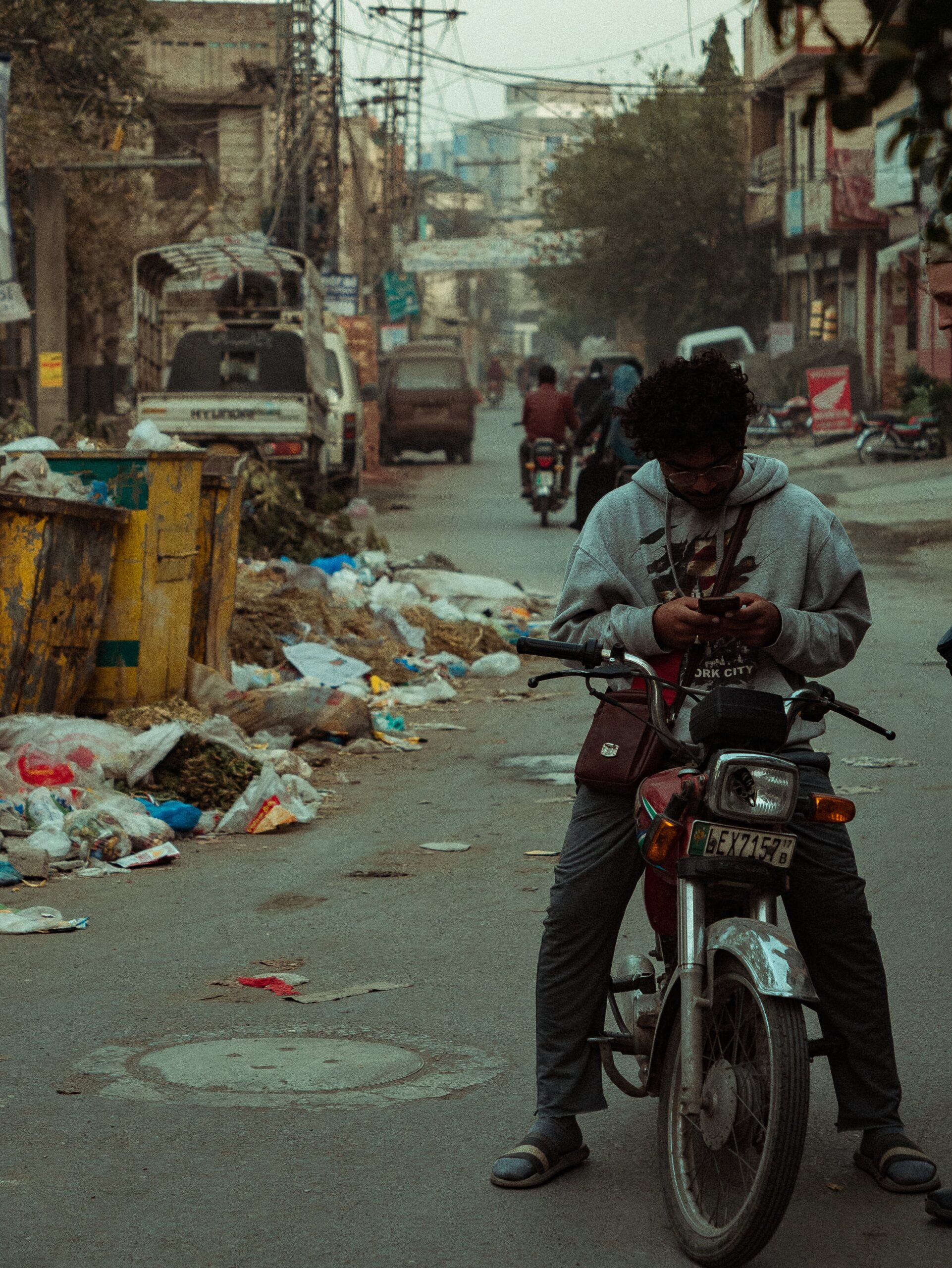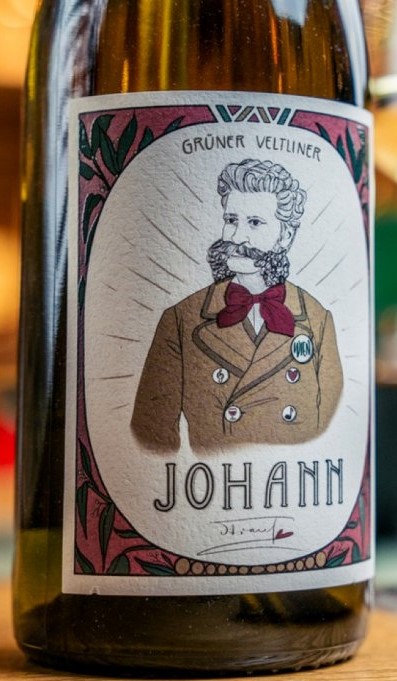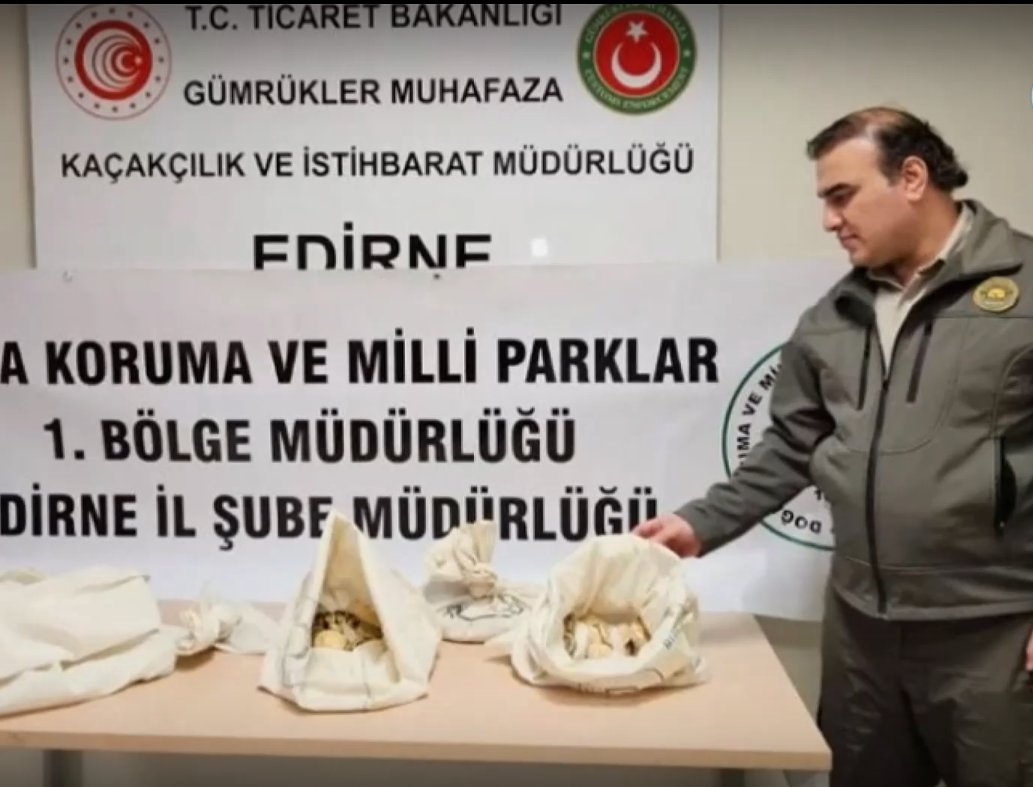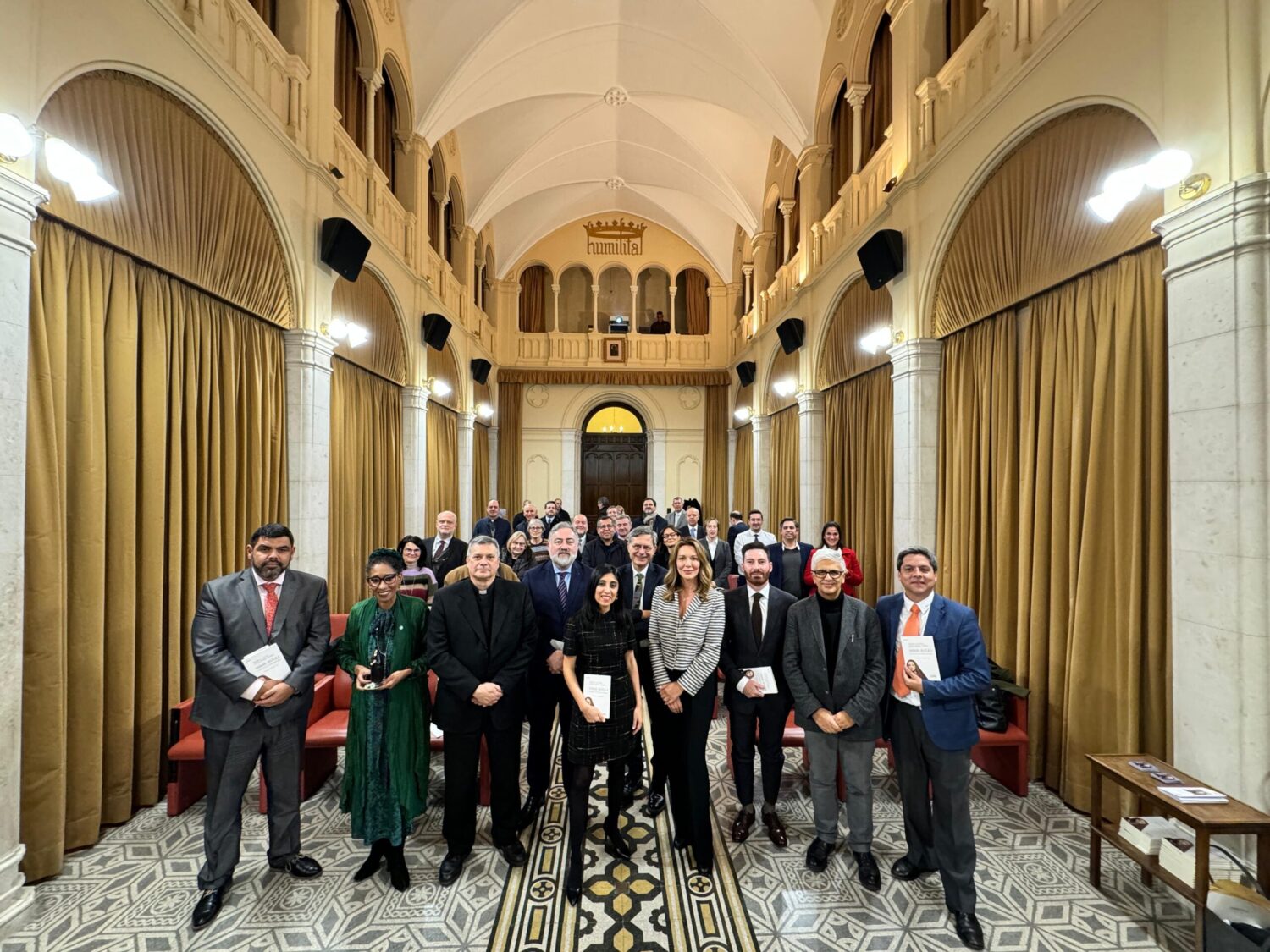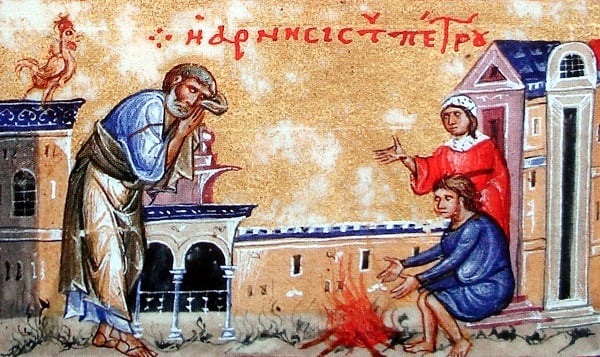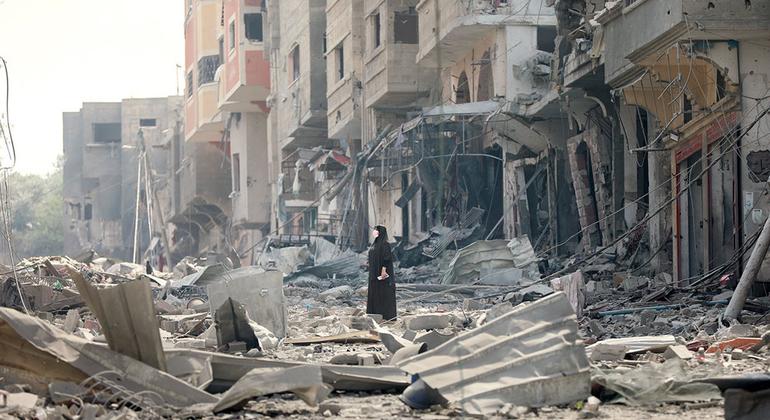“This is an important step in the right direction, but much more needs to be done,” Mr. Guterres said via a statement from his spokesperson Farhan Haq.
The top UN official leading efforts to secure a lasting peace in the Middle East, Tor Wennesland, echoed those comments and also welcomed the announced 96-hour “humanitarian pause” in war-shattered Gaza.
“This pause must be used to its fullest extent to facilitate the release of hostages and alleviate the dire needs of Palestinians in Gaza.”
The development comes as UN humanitarians reiterated that they remain ready to seize the opportunity to ramp up lifesaving aid to the enclave.
‘Ocean of need’
Following the four-day ceasefire announcement the UN World Health Organization (WHO) issued fresh calls for safe, unimpeded humanitarian access in the Strip.
“The fighting needs to stop so that we can quickly scale up our response,” said Dr. Ahmed Al-Mandhari, WHO Regional Director for the Eastern Mediterranean. “We cannot keep providing drops of aid in Gaza in an ocean of need.”
Meanwhile, WHO said that a new evacuation was under way at Gaza City’s embattled Al-Shifa hospital, with more to follow in northern Gaza.
‘Senseless conflict’
According to media reports, the ceasefire between Israel and Hamas was due to begin within 24 hours of its announcement. In his statement, Mr. Wennesland welcomed the efforts of the Governments of Egypt, Qatar and the United States in “facilitating” the agreement.
WHO’s representative in the Occupied Palestinian Territory, Dr. Richard Peeperkorn, said that any news of a humanitarian pause and of a release of hostages was welcome, but that a true end to the fighting was needed.
At the same WHO press conference in Cairo, Dr. Al-Mandhari called for a “permanent ceasefire” and said that the parties to the conflict should “put the welfare and health of their people as their first priority”.
The UN health agency official also led a minute of silence to honour WHO staffer Dima Alhaj, killed in Gaza on Tuesday, along with many relatives. “As we grieve, we are reminded of the senseless nature of this conflict and of the fact that in Gaza today nowhere is safe for civilians, including our own UN colleagues,” he said.
Since the start of Israel’s retaliation of Hamas’ 7 October massacres which left 1,200 dead in southern Israel and some 240 hostages abducted, 108 UN staff members have been killed in the Strip.
New hospital evacuations under way
Dr. Peeperkorn revealed on Wednesday that a mission was under way in close coordination with humanitarian partners the Palestinian Red Crescent and Médecins Sans Frontières, to evacuate patients and health workers remaining in Al-Shifa.
The mission follows the initial inter-agency evacuation of 31 premature babies on Sunday. Out of the 220 patients and 200 health workers still at the hospital, the priority evacuees would be 21 dialysis patients, 29 patients with spinal injuries and those in intensive care, Dr. Peeperkorn said.
He also informed that in the meantime, the UN health agency has received evacuation requests from three other hospitals in northern Gaza: Al-Ahli Arab Hospital, Al-Awda Hospital and the Indonesian Hospital, and planning was under way, with WHO and its partners sparing no efforts to “make sure this happens in the coming days”.
He explained that such evacuations are only undertaken upon request and as a last resort.
Attacks on healthcare
Dr. Al-Mandhari deplored the fact that even hospitals are not being protected from the “horrors” of the conflict in Gaza. WHO has documented 178 attacks on healthcare in the Strip since 7 October and out of the enclave’s 36 hospitals 28 are not functional anymore, his colleague Dr. Peeperkorn told journalists.
The eight remaining hospitals, all in the south, are “overwhelmed”, he said, and all efforts must be made to keep them functional and expand their bed capacity.
The enclave had some 3,500 hospital beds prior to the current escalation and that number is now down to less than 1,400.
People seek refuge in the Al-Quds hospital in Gaza. (file)
Much more aid required
The perspective of a ceasefire has raised hopes for improved access to desperate Gazan civilians and an increase in the volume of relief items coming through.
According to UN humanitarian affairs coordination office OCHA, the aid trucks which have been entering Gaza since 21 October represent barely 14 per cent of the monthly volume of humanitarian and commercial transport reaching the enclave before the start of the current hostilities; this excludes fuel, which had been completely banned by the Israeli authorities until just a few days ago.
OCHA said that on Tuesday, 63,800 litres of fuel entered Gaza from Egypt, following an Israeli decision from 18 November to “allow the daily entry of small amounts of fuel for essential humanitarian operations”.
The incoming fuel is being distributed by the UN agency for Palestinian refugees, UNRWA, to support food distribution and the operation of generators at hospitals, water and sanitation facilities, shelters and other critical services.
No food in the north
News of the ceasefire agreement came amid fears of hunger spreading in the north, which has been sealed off from the south by Israeli military operations. Humanitarian agencies have been unable to deliver assistance there since 7 November. Due to the lack of cooking facilities and fuel, “people are resorting to consuming the few raw vegetables or unripe fruits that remain available to them”, OCHA said, while no bakeries are open.
OCHA also warned that livestock in the north “is facing starvation and the risk of death” due to the shortage of fodder and water, and crops are being “increasingly abandoned”.
The UN Food and Agriculture Organization (FAO) said 10 days ago that it considered the entire civilian population in Gaza to be food insecure.
Mental health needs ‘skyrocketing’
The distress caused by constant bombing, displacement and massive overcrowding in the UNRWA shelters, in some of which 400 people have to share a toilet, has been taking a heavy psychological toll on Gazans. OCHA said that mental health care needs are “skyrocketing”, especially for the most vulnerable: children, persons with disabilities and those with pre-existing complex conditions.
“Only limited psychosocial support services and psychological first aid is being provided in some shelters across Gaza where protection actors are sheltering and have capacity to respond”, OCHA said. Many services have reportedly been destroyed and many staff are unable to work.
OCHA also highlighted an increase in the movement of unaccompanied children and separated families. The UN Office said that an interagency plan is being developed to respond to this situation, including the registration of cases.
Humanitarians stand ready
The OCHA chief, UN Humanitarian Coordinator Martin Griffiths, issued a statement welcoming the agreement.
“I hope it brings some respite to the people of Gaza and Israel and some relief to the hostages and detainees who will be released and to their families. I also hope it allows grieving families to honour their dead and bury them with dignity,” he said.
Humanitarian agencies are mobilized and ready to increase the volume of aid brought into Gaza and distributed across the Strip, he added.
He said that as they wait for the pause to come into effect, they renew their call for full adherence to international humanitarian law, safe and unimpeded access to deliver aid to people in need, protection of civilians, and the immediate and unconditional release of all hostages.



